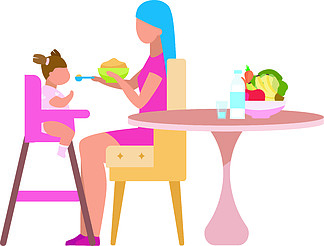After the baby eats in the puerperium, diarrhea may occur. This situation may be a normal physiological reaction or may be caused by various diseases. If the baby’s gastrointestinal system is not yet mature, a small amount of formula intake may cause mild diarrhea, usually requiring no special treatment, and will naturally improve over time. However, if diarrhea is accompanied by other symptoms such as fever and cough, it may be due to gastrointestinal dysfunction caused by a cold, requiring medical guidance and the use of appropriate medications.
Digestive issues may also be the culprit, such as improper diet by the mother or the baby getting cold in the abdomen, both of which may cause food indigestion, an increase in bowel movements, and changes in shape. In such cases, gentle abdominal massage or hot compress, as well as probiotics recommended by a doctor, can help regulate.
Some babies may have insufficient lactase in their bodies, making it difficult to digest lactose in formula, leading to diarrhea and bloating. In this case, choosing low-lactose or lactose-free formula is more suitable, and gradually trying other foods as the baby grows older.
Additionally, cow’s milk protein allergy should not be overlooked, as it can cause various allergic reactions including diarrhea. Once confirmed, discontinue milk formula containing cow’s milk protein immediately and take measures to relieve symptoms, such as using antiallergic medications.
Other health issues, such as thrush, bacterial or viral infections, can also cause diarrhea in babies. Therefore, maintaining good hygiene habits, arranging feeding amounts reasonably, and adjusting clothing for warmth in a timely manner are all key to prevention. When a baby has diarrhea, the most important thing is to seek medical attention promptly, determine the specific cause, and receive treatment.


